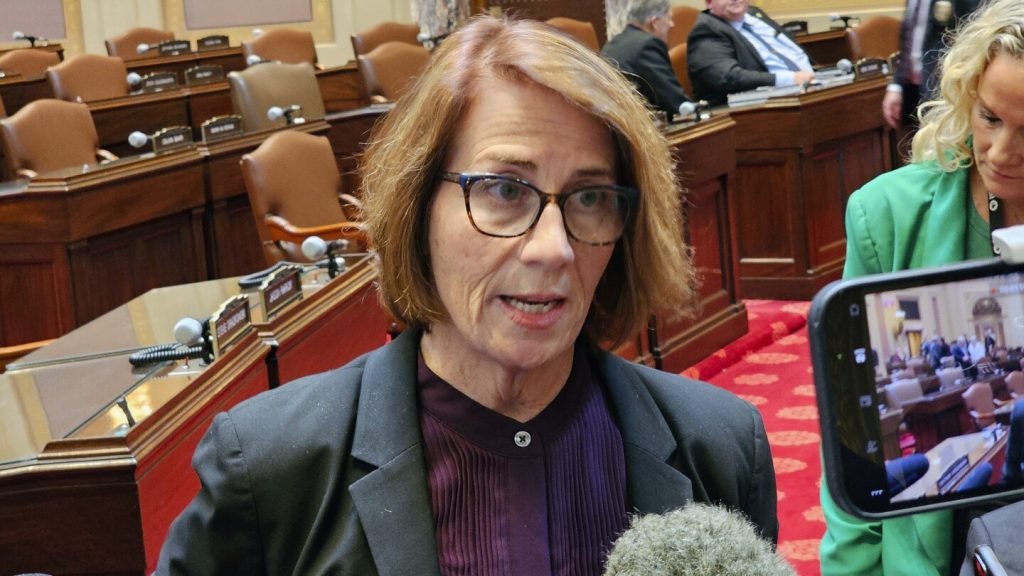A Republican attempt to expedite an ethics investigation of Democratic Minnesota state senator Nicole Mitchell, who is facing a felony burglary charge, failed on a tie vote Wednesday. Mitchell was absent as the Senate met for the first time since her arrest at her estranged stepmother’s home. Mitchell broke into the home seeking sentimental items from her late father, including his ashes. She was charged with first-degree burglary and released after a day in jail, complicating the legislative session as Senate Democrats hold a one-seat majority. Republican Minority Leader Mark Johnson called on Mitchell to resign, raising concerns about the impact on upcoming bills that may rely on her vote.
Democratic Majority Leader Erin Murphy stated that Mitchell will be allowed to vote remotely as the legal process plays out, but several bills were put on hold due to the turmoil caused by Mitchell’s arrest. Mitchell has denied stealing and her attorney has advised her not to resign, citing a fractured relationship with her stepmother. Senate Republicans filed an ethics complaint against Mitchell and attempted to launch an investigation and consider her expulsion immediately, though the process typically takes 30 days to start. GOP Senator Eric Lucero emphasized the need for a swift examination of the felony charge to uphold the integrity of the Senate and the state of Minnesota.
Some lawmakers argued that Mitchell is entitled to due process and the presumption of innocence, pointing out that other lawmakers charged with crimes were allowed to go through the legal process. The ethics panel, comprised of two Democrats and two Republicans, would require a two-thirds majority vote to expel a senator. Senator Mitchell’s empty desk during the debate highlighted the challenging situation for the institution. Murphy mentioned having a brief conversation with Mitchell after her release, focusing on her well-being and family. Mitchell will need to have difficult conversations with her family, constituents, and colleagues as the situation unfolds.
The impact of Mitchell’s arrest on the legislative session and upcoming bills raised concerns among lawmakers, particularly due to the narrow majority held by Senate Democrats. Mitchell’s absence and the ethics investigation have added complexity to the proceedings, with calls for her resignation and a swift examination of the charges. While Mitchell maintains her innocence and denies stealing, the legal and legislative process will determine the next steps. The Senate Ethics Panel, consisting of members from both parties, will play a crucial role in deciding the fate of Senator Mitchell based on the allegations against her.
The unfolding situation involving Senator Mitchell has gripped the attention of Minnesota lawmakers and the public as they navigate through the complexities of ethics investigations and due process. The need to uphold the integrity of the Senate while ensuring fairness to all parties involved remains a key focus in the discussions. Mitchell’s case serves as a reminder of the importance of conducting thorough investigations and following established procedures in cases of alleged misconduct by elected officials. The outcome of the ethics investigation will have far-reaching implications on the legislative session and the political landscape in Minnesota. The debate over Senator Mitchell’s future in the Senate reflects broader concerns about accountability and transparency in government.


